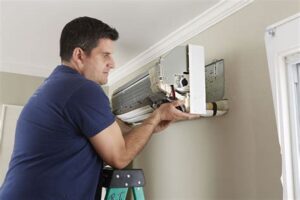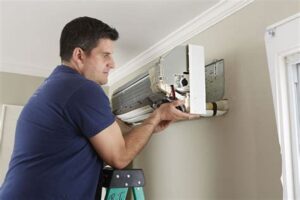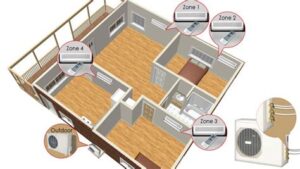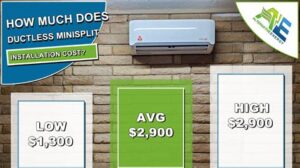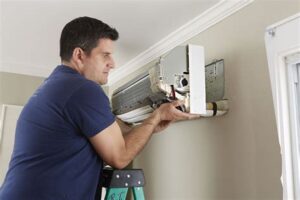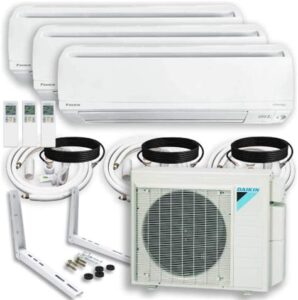Discover the essentials of mini split installation, importance of licensing, risks of unlicensed work, and benefits of hiring a licensed professional.When considering the installation of a mini-split system, many homeowners are left wondering if they actually need a license for this process. Mini-splits are gaining popularity for their efficiency and flexibility, but the installation involves more than just plugging in a unit. Understanding the intricacies of mini-split installation is crucial, especially when it comes to licensing requirements. Are you aware of the risks posed by unlicensed installation? In this blog post, we will explore the importance of obtaining the proper licenses, the specific licensing requirements for mini-split installations, and the substantial risks associated with bypassing this critical step. We’ll also discuss the benefits of hiring a licensed professional to ensure your system is installed safely and effectively. Let’s dive in and clarify these essential points to help you make informed decisions about your mini-split installation.
Understanding Mini Split Installation
Installing a mini split system can be an efficient way to provide heating and cooling to a selected area in your home. These systems are favored for their energy efficiency, compact size, and flexibility. However, understanding the correct steps involved in mini split installation is crucial to ensure optimal performance and longevity.
When it comes to mini split systems, the installation process includes several essential steps. First, you will need to properly select the location for the indoor and outdoor units. This choice impacts both functionality and aesthetics. After that, you need to ensure that the necessary electrical and refrigerant lines are installed correctly. Lastly, proper sealing and insulation play a vital role in maintaining energy efficiency.
In addition to the technical aspects, it is important to consider licensing requirements. Certain regions require licensed professionals to undertake these installations to comply with local regulations and to ensure safety. By hiring a licensed technician, you not only adhere to legal requirements but also gain the benefit of professional expertise, helping to
Importance of Licensing
The importance of licensing in the installation of mini splits cannot be overstated. Licensed professionals bring a level of expertise and knowledge that ensures the system is installed correctly, which directly impacts its efficiency and longevity. Moreover, many jurisdictions require a license to guarantee that technicians are trained to handle specific equipment safely and according to local regulations.
Obtaining a license typically involves rigorous training and understanding of HVAC systems, including the intricacies of mini splits. This training ensures that licensed technicians are equipped to deal with the complexities of mini split installation, making them uniquely qualified to handle potential challenges that may arise during the process.
Additionally, hiring a licensed professional can provide peace of mind to homeowners. In the case of issues arising post-installation, warranties are often tied to licensed work, allowing homeowners to seek repairs or replacements without incurring extra costs. Ultimately, investing in a licensed technician not only enhances the overall installation quality but also protects your long-term investment.
Licensing Requirements for Mini Split Install
When considering the installation of a mini split system, one of the most critical aspects to examine is the licensing requirements. Each state has its own regulations governing HVAC installations, which are designed to ensure that the work is performed safely and effectively. Understanding these regulations can save homeowners from potential legal issues and ensure the longevity and performance of their mini split systems.
In most regions, a licensed professional must perform the installation. This requirement is often in place to ensure that the installation meets local building codes and safety standards. A typical requirement might include the following:
| License Type | Description | Typical Requirements |
|---|---|---|
| HVAC License | A license specifically for heating, ventilation, and air conditioning systems. | Completed apprenticeship or training program; passed licensing exam; proof of insurance. |
| Electrical License | Required if the mini split system requires hardwiring to the electrical system. | Passed electrical licensing exam; knowledge of local electrical codes. |
Hiring a licensed contractor not only ensures compliance with local laws but also provides peace of mind knowing that they possess the necessary skills and training. When searching for a contractor, always verify their credentials and check for any complaints or reviews from previous clients. This will help in hiring a qualifie
Risks of Unlicensed Installation
When it comes to mini split installation, one of the most significant concerns is the potential risks associated with unlicensed installation. Many homeowners might be tempted to save money by hiring an unlicensed technician or attempting the install themselves. However, this can lead to several problems that could be costly in the long run.
To illustrate, consider the following risks associated with unlicensed installations:
| Risk | Description |
|---|---|
| Improper Installation | Unlicensed technicians may lack the necessary knowledge and expertise, resulting in improperly installed units that fail to operate efficiently. |
| Violation of Local Codes | Many areas have specific building codes and regulations that must be adhered to. Unlicensed installers may not comply, leading to potential fines or legal issues. |
| Increased Repair Costs | Faulty or improper installations often lead to breakdowns, resulting in higher repair costs in the future. |
Additionally, there are safety concerns to consider. Unlicensed installation can pose risks such as electrical hazards, refrigerant leaks, and even fire risks. These not only endanger the property but also the lives of those living in it. Therefore, hiring a licensed professional is crucial t
Benefits of Hiring Licensed Professional
When it comes to mini split installations, hiring a licensed professional offers numerous advantages that can significantly impact the success and longevity of your system. One of the primary benefits is assurance that the work will be performed according to industry standards. A licensed installer will have a thorough understanding of local codes and regulations, ensuring compliance and reducing the risk of future issues.
Additionally, a licensed professional often comes with liability insurance and bonding. This means that in the unfortunate event of an accident or damage during the installation process, you are protected from potential financial burdens. Furthermore, many manufacturers require installations to be completed by a licensed technician in order to maintain warranty coverage, thus preserving your investment in the mini split system.
Another key benefit is the expertise and experience that licensed professionals bring to the table. They can provide valuable insights during the installation process, such as the optimal placement of units for maximum efficiency, which can lead to improved energy savings over time. Ultimately, hiring a licensed installer ensures that your mini split system is installed correctly, providing you peace of mind and a comfortable living environment.
Frequently Asked Questions
What is a mini split system?
A mini split system is a type of air conditioning or heating system that consists of an outdoor unit and one or more indoor units, allowing for separate temperature control in different rooms.
Do I need a license to install a mini split in my home?
The requirement for a license to install a mini split varies by location. In many places, a licensed HVAC technician is required to ensure safe and correct installation.
What are the potential risks of installing a mini split without a license?
Installing a mini split without the proper license can lead to unsafe conditions, system inefficiency, potential damage to your home, and may void the warranty on the unit.
How can I find out the licensing requirements in my area?
You can check your local government or building department’s website for licensing requirements, or consult with a local HVAC professional for guidance.
What are the benefits of hiring a licensed professional to install a mini split?
Hiring a licensed professional ensures that the installation is done correctly, complies with local codes, and helps to avoid potential problems down the line.
Are there any specific tools required for mini split installation?
Yes, installing a mini split typically requires specific tools like refrigerant gauges, vacuum pumps, and specialized power tools to properly mount the units and connect refrigerant lines.
Can I install a mini split myself if I’m handy?
While some skilled individuals may attempt a DIY install, it is generally recommended to hire a licensed professional due to the complex nature of the system and the need for proper testing and certification.
